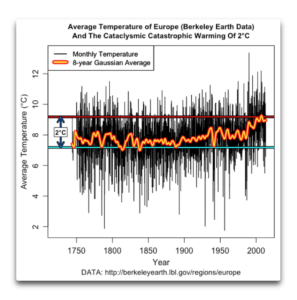by Robert Bradley Jr., March 7, 2019 in MasterResource
“Better climate knowledge about natural versus anthropogenic forcing seems to a decade away.” That was the major takeaway from a major 1999 climate conference in Houston, Texas as noted by Martin Cassidy of the Houston Geological Society, who authored a conference summary, “Global Climate Change: Panel Agrees: ‘In 10 Years We Will Know‘.”
In fact, one of the conference participants, Gerald North, climatologist at Texas A&M, repeated this a decade after this conference. In his words:
In another decade of research we will have squared away a lot of our uncertainties about forced climate change. As this approaches we can be thinking about what to do if the warming does indeed appear to be caused by humans and to what extent things are changing as result. (North to Seldon B. Graham, Jr. January 6, 2010)
Now for Cassidy’s 1,000-word writeup. As you read this, ask yourself: what is really that different today, 20 years later, science-wise?
…

